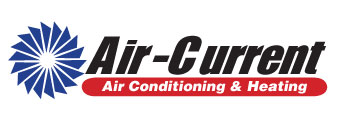
If you’re questioning whether your Houston home has poor indoor air quality (IAQ), it probably does.
We are indoors a lot. In reality, we’re inside up to 90% of the time, according to the U.S. Environmental Protection Agency. And the air inside houses could be 2–5 times more contaminated than outdoors, which might create long-term health problems.
Most Common Causes of Poor IAQ
We’ve put together a list of the most ordinary causes of bad IAQ, the problems they make and how you can take care of these indoor air pollutants. If you’re worried about the air inside your home, we suggest chatting with a pro like Air Current AC & Heat about which products are best for your house.
Volatile Organic Compounds
Volatile organic compounds, or VOCs, are chemicals released by regular household items.
They’re found in paint and stains in addition to:
- Furniture
- Carpet
- Building materials
- Cleaning products
- Cosmetics
- Air fresheners
- Candles
When these vapors accumulate inside, they may irritate your eyes, nose and throat. They can also lead to headaches and nausea. Regardless of whether your house is in a rural or industrial area, an EPA study found indoor levels of these chemicals can be 2–5 times higher than the air outside.
Always adhere to the manufacturer’s directions when using paint or cleaning supplies. Opening a window can help odors dissipate faster.
Air purification systems can also help. This system partners with your heating and cooling unit to freshen indoor air. When hunting for a model, ensure it’s specifically designed to wipe out VOCs.
Dust and Pet Dander
Dust and pet dander can aggravate health problems like asthma and allergies, especially when it continuously gets recirculated by your home’s comfort unit. While you can vacuum more regularly and buy an improved air filter, an air filtration system might be a better fit.
This solution hooks to your HVAC equipment to give strong filtration. Some kinds have hospital-level filtration for getting rid of particles and bioaerosols.
Lasting Odors
New residences are closely sealed to boost energy efficiency. While this is great for your heating and cooling expenses, it’s not very good for your IAQ.
Stuffy odors can stick around for a greater amount of time because your house is pulling in a smaller amount of fresh air. As keeping your windows open all year-round isn’t an option, here are two approaches you can make your indoor air smell better.
An air purification system is installed in your ductwork to neutralize odors before they are redistributed. Look for one with a carbon filter and the power to break down damaging VOCs. These units can also help keep your loved ones healthy by getting rid of most bacteria and normal allergy triggers like pollen and mold spores.
A ventilation system removes stale indoor air and replaces it with clean outdoor air. There are two types of systems (heat recovery and energy recovery), so call our professionals for more information on which solution is right for your house.
Unsteady Humidity
It’s essential your house’s humidity remains even. Air that’s too moist can cause mold, while dry air can lead to respiratory concerns.
Our experts suggest 40–50% for the best comfort. To keep yours in balance, consider getting a whole-home humidifier or whole-home dehumidifier with your heating and cooling unit.
Instead of having to pull a humidifier from room to room, this equipment delivers balanced humidity throughout your house.
Carbon Monoxide
Carbon monoxide is colorless gas you can’t smell. It occurs when there’s insufficient combustion in fuel-burning appliances, like gas heating systems, water heaters or fireplaces.
It presents a severe health risk. In low levels, it can create flu-like sickness like headaches and nausea. It could be deadly in big amounts.
We suggest regular furnace maintenance to make sure your system is working smoothly. This job allows our techs to find issues before they start, including malfunctions that can cause carbon monoxide leaks.
The best approach to keep your home free of carbon monoxide is to get detectors. These alarms must be on every floor by bedrooms and living spaces.
Better Your Home’s Air Quality with the Air Current AC & Heat Specialists
Aware that your house has poor air quality but not sure how to improve it? Or unsure which option is right for you? Give our friendly HVAC experts a call at 713-322-4318 or contact us online now. With free estimates and expert assistance, we’ll help you locate the ideal solution for your family and budget.
